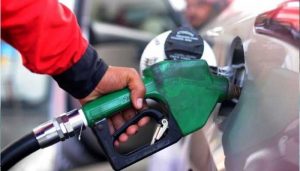There is a 16.5% decrease in petroleum product demand.
To achieve 6.15 million tonnes, sales dropped by 22%.

KARACHI:
The overall demand for petroleum products in Pakistan has remained subdued at 1.66 million tonnes despite a 9% month-over-month increase in the month that ended on October 31, 2022. When compared to the prior month, the demand for petroleum products climbed by over 9% in October. In contrast, this is a 16.5% decrease from the same time previous year.
According to Arif Habib Limited (AHL), the sale of petroleum products declined noticeably by 22% to reach 6.15 million tonnes in the first four months of the current fiscal year 2023 (FY2023), as opposed to 7.85 million tonnes in the same period previous year. The country’s demand has been low since May 2022 as a result of high oil prices, despite some relief in the global markets. Additionally, a large decline in industrial activity, notably a sharp decline in auto sales, a significant decline in the production of electricity using oil, and a partial rebound in agricultural activity in the post-flood era have all helped to reduce the demand for fuel.
Tahir Abbas, the head of research at AHL, stated in an interview with the Express Tribune that “oil sales have remained dull in the aftermath of a general economic slump in the country.” Due to low base effect, which indicates that economic activity and the sale of petroleum products have severely decreased in September 2022 as a result of the recent floods, he continued, “a rebound of over 9% in sales on a month-over-month basis is seen.” Oil sales in October saw a modest recovery thanks to “the sluggish and steady return in economic activities from nearly a complete halt, primarily in the agricultural sector due to the rainfall and floods,” according to Abbas. He continued, “A significant 57% decline in car sales during the first three months of FY2023, from July to September, also kept petrol sales down.
In October of this year, the demand for gasoline decreased by 11% to 0.68 million tonnes from 0.77 million tonnes during the same month previous year. “Compared to 0.84 million tonnes sold in the same month last year, sales of high-speed diesel (HSD) fell 15% to 0.71 million tonnes in October. However, due to the start of the wheat growing season and receding floodwater in the agricultural areas, the demand for HSD increased by 37% in the reviewed month compared to the previous month,” he noted. He continued, “In addition, the demand for furnace oil declined drastically by 37% year-over-year and 33% on a month-over-month basis to 0.20 million tonnes in October as a result of the government reducing its reliance on oil-based electricity generation.
“Similarly, in October, the demand for electricity itself fell by 10-12%. When compared to comparatively less expensive sources like hydel, nuclear, local coal, and local gas, the drop helped the government lessen its reliance on costly oil-based power generation, according to Abbas. Abbas remarked that Pakistan State Oil (PSO), a state-owned company, continued to dominate the market. Data show that in October 2022, PSO alone accounted for around 50% (0.85 million tonnes) of all petroleum sales. Attock Petroleum Limited, which sold 0.14 million tonnes, came next. Third place with sales of 0.13 million tonnes went to Shell Pakistan. However, Shell didn’t sell any furnace oil throughout the month of October. The sales of petroleum products (excluding furnace oil) in October were only 0.03 million tonnes, a pitiful contribution from Hascol, previously one of the industry leaders.










































